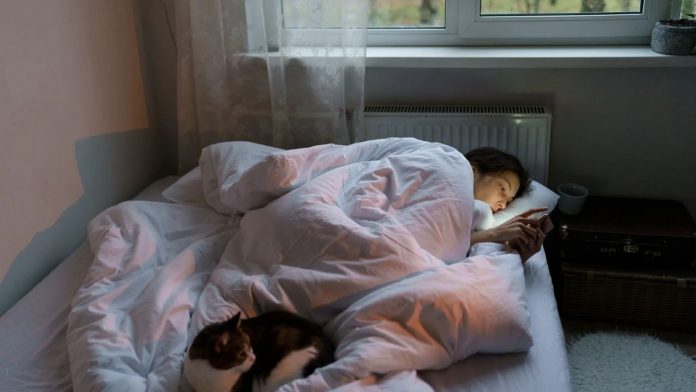
Tucked away in the algorithm-driven corners of TikTok, Twitter (or should I say “X”), and Instagram, there’s a phenomenon gaining traction, especially among Gen Z: “bed rotting.” But what is it about this act that resonates so deeply with today’s youth? Is it a passing trend, a form of silent protest, or a deeper sign of the times?
Diving into Bed Rotting
For the uninitiated, bed rotting is the act of lying in bed for prolonged periods, not due to illness or physical fatigue, but often driven by emotional or mental states. While older generations might dismiss it as sheer laziness or a lack of ambition, the reality is far more nuanced.
Why Gen Z?
This generation, armed with technology from a young age, has seen the world in ways no previous generation has. From global crises to the rise of influencer culture, their worldview is unique. So, why is bed rotting becoming a “thing” among them?
- Overwhelm & Digital Burnout: Gen Z is the first generation to grow up fully immersed in the digital world. While this brings unparalleled connectivity, it also brings information overload, comparison culture, and a sense of never truly “switching off”.
- Protest Against Hustle Culture: Recently I wrote a blog post about Hustle Culture. For a generation witnessing the fallout of relentless hustle, bed rotting can be seen as an act of rebellion. A silent protest against the “always-on” mentality.
- Mental Health Awareness: Unlike previous generations, Gen Z is more vocal about mental health. Bed rotting can be both an expression of mental exhaustion and a plea for understanding.
- Isolation in Connectivity: Ironically, in an era of global connection, many feel isolated. Physical interactions have been replaced with likes, shares, and retweets. The bed becomes a safe cocoon against the paradox of feeling alone in a crowded digital space.
Beyond the Trend: Implications & Understandings
Bed rotting, whether a conscious act or subconscious retreat, has tangible implications:
- Physical Health: Extended periods in bed can lead to health issues, from muscle weakening to sleep disturbances.
- Mental Well-being: While it might start as a retreat, prolonged bed rotting can exacerbate feelings of isolation, anxiety, and depression.
Breaking the Cycle
Understanding is the first step. If Gen Z’s bed rotting is a statement, then it’s one we should listen to. Solutions can be multi-faceted:
- Open Conversations: Encourage open dialogues about feelings without judgment. Sometimes, understanding the “why” can pave the way for change.
- Digital Detox: Encourage breaks from the online world. Rediscover offline hobbies and passions.
- Redefine Success: Challenge the traditional narratives of success and achievement. It’s okay to have days of rest and reflection.
- Professional Help: If bed rotting becomes chronic, consider seeking therapeutic interventions.
Conclusion
For Gen Z, bed rotting isn’t just a trend; it’s a statement. It’s an embodiment of their experiences in a world that’s both incredibly connected and profoundly isolating. Recognizing it as such allows us to approach the phenomenon with empathy, offering support and understanding rather than judgment.